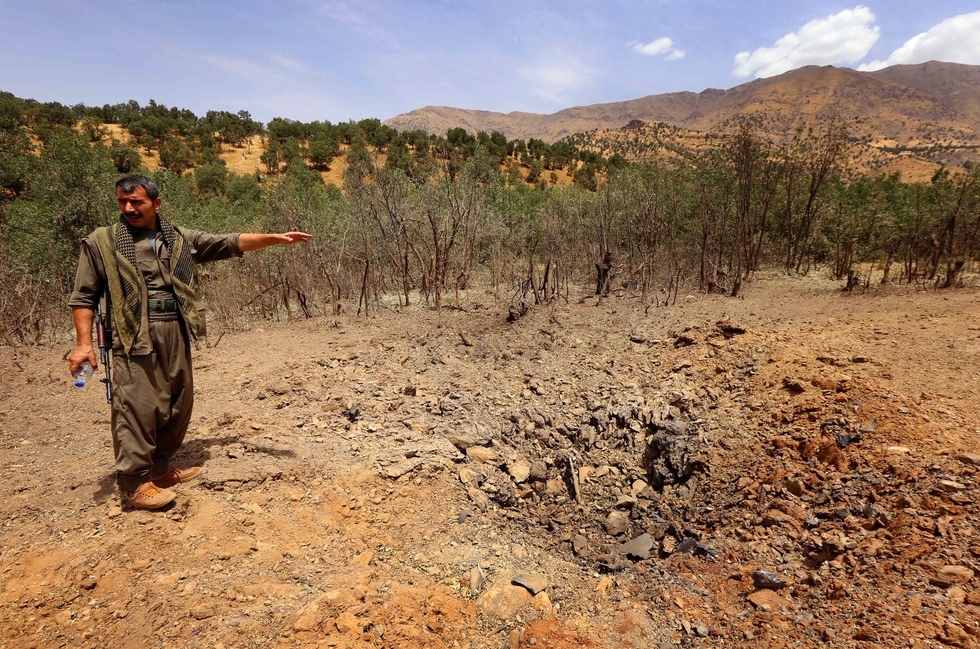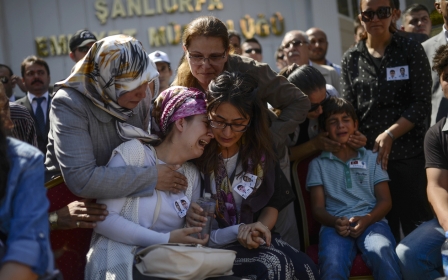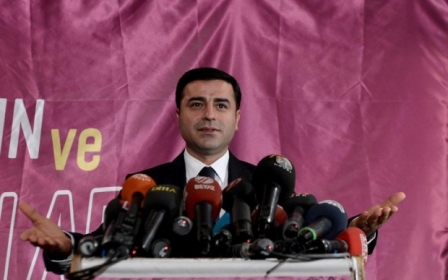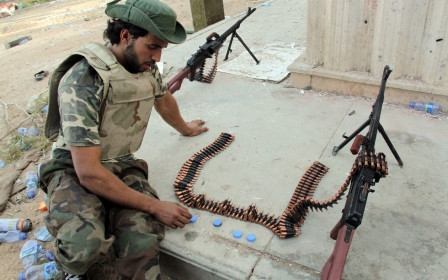Kurdish villagers suffer consequences of Turkish airstrikes against PKK

Zargali, Iraq - For two hours in the early morning of 1 August, between 4am and 6am, residents of Zargali listened as Turkish F-16s targeted alleged Kurdistan Workers’ Party (PKK) positions in Kurdish villages in northern Iraq, including their own.
More than two weeks after the strikes, part of Turkey’s ongoing operation against the PKK dubbed Operation Martyr Yalcın, one mother in Zargali described to Middle East Eye the high-pitched piercing sound the jets made as they flew overhead.
Children in the village, she said, are still recovering from the noise of the strikes, which levelled a mosque and six homes and claimed the lives of eight.
Turkish news agency Anadolu reported 1 August that 28 F-16 jets raided 65 PKK targets in northern Iraq. A day earlier, 80 jets struck more than 100 targets. The two sides had maintained an uneasy ceasefire since March 2013, which was unilaterally broken by the PKK following the Suruc bombing on 20 July.
Turkey’s campaign against what it believes are PKK positions in Syria and northern Iraq comes amid a string of fatal attacks on Turkish security personnel throughout the country. Many of these attacks, which have claimed the lives of more than 40 Turkish security personnel, have been claimed by the PKK and the group’s affiliates.
“The state of the Turkish republic is adamant on fighting all terrorism without distinction as it has always done, be it the terrorist organisation of Daesh [Isis], the terrorist organisation of the PKK or any other international terrorist organisation,” Turkish Prime Minister Ahment Davutoglu charged days before the strike.
The PKK, widely regarded as a terrorist organisation in the West, and the Kurdish Regional Government (KRG) in Iraq, which has close ties with Ankara, disagreed about the PKK activities in Zargali and surrounding villages in the lead up to, and on the night of the strike.
At the last KRG checkpoint before Zargali, nestled in looming mountains that separate Iran from Iraq, assembled security personnel told Middle East Eye that residents of the village have been unable to speak openly to press about the PKK’s role in the village, due to fear of reprisals. They contended that residents hope the PKK will leave the village.
KRG personnel said that PKK fighters had demanded money from residents in the village for ensuring the village’s safety and security. A KRG plainclothes security official insisted that PKK fighters had been in the village at the time of the attack, and had tried to force entry to a family home.
In Zargali however, PKK spokesperson Zagros Hiwa told Middle East Eye that the village had been empty of fighters at the time of the strikes. Gesturing to the debris of what he and residents say were six homes, Hiwa charged rhetorically, “What military infrastructures are here? These are family homes.”
“The fighters are in the mountains, not in the village,” he insisted.
During Middle East Eye’s interview with PHiwa, he was joined by what appeared to be an unarmed colleague. PKK fighters, if not in the village proper, operate a checkpoint on the main road approximately two kilometers from Zargali, and the group’s spokespeople have harboured a significant presence in the village following Turkey’s 1 August strike.
In scorching temperatures, the smell of wreckage and human remains linger, even weeks after the strikes. A sewing machine, single serve Nescafe sachets, shampoo bottles, and a child’s English language copy book are scattered throughout the rubble on the hillside where residents say the first strike hit at approximately 4am.
The child whose name was inscribed on the pink and blue copy book cover lost his father in the attack. Windows of homes surrounding where the initial strike hit were blown out during the attack. The ground is sprinkled in glass shards. Next to a crater surrounded by rubble, a charred pomegranate tree, still bearing blackened fruit, shades a mangled pickup truck.
Leaning against the doorframe of her shop at the entrance to the village, an elderly women estimated Zargali’s population at 14 families with at least seven in each family. Most residents have left Zargali following the strikes, she told Middle East Eye, fearing the Turkish air force will target suspected PKK positions in the village again.
Some residents, she noted, have slowly begun returning to Zargali during daylight hours to tend to crops and begin what is likely to be a long reconstruction process.
Middle East Eye propose une couverture et une analyse indépendantes et incomparables du Moyen-Orient, de l’Afrique du Nord et d’autres régions du monde. Pour en savoir plus sur la reprise de ce contenu et les frais qui s’appliquent, veuillez remplir ce formulaire [en anglais]. Pour en savoir plus sur MEE, cliquez ici [en anglais].




